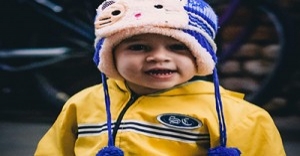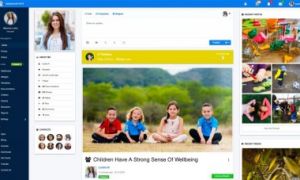

When children feel safe, secure and supported they grow in confidence to explore and learn. In early childhood settings children develop a sense of belonging when they feel accepted, develop attachments and trust those that care for them. As children are developing their sense of identity, they explore different aspects of it (physical, social, emotional, spiritual, and cognitive), through their play and their relationships. The following article provides activities to promote each of the sub outcomes of EYLF Outcome 1: Children Have A Strong Sense Of Identity.
The Early Years Learning Framework outlines a set of eight pedagogical practices for educators to draw upon to promote children’s learning. These practices range from macro aspects like building relationships and curriculum decision-making to daily interventions like teaching and learning. The following article provides information on each of the 8 Practices and examples of how to implement the eylf practices into your service.
The Early Years Learning Framework outlines five principles that reflect contemporary theories and research evidence concerning children’s learning and early childhood pedagogy. These principles are meant to underpin practice so that all children are supported to make progress in relation to the Learning Outcomes. The following article provides information on each of the 5 Principles and examples of strategies of how to implement the eylf principles into your service.
According to the Educators’ Guide to the Early Years Learning Framework, documentation is the practice of recording and creating evidence of learning and the learning progress, helping make it visible. Though documentation is mandated to meet regulatory and pedagogical purposes, there are no prescriptive rules about how it may be done. The following article provides strategies for documenting in an early childhood setting.
Respect for Diversity is one of the main principles that underpin the Belonging, Becoming and Being: Early Years Learning Framework for Australia. Thus it is mandatory for services and educators to use practice that incorporates diverse cultures, especially in monocultural classrooms where opportunities for practice diversity can appear limited. Here are some examples of ways diverse cultures can be embedded in everyday practice.
Belonging, Being and Becoming: The Early Years Learning Framework for Australia embeds art in many significant ways to foster the holistic development of children. Here are the main curriculum connections of art in the early childhood learning framework.
When writing Summative Assessments it provides you an opportunity to summarise all the documentation you have collected on each child's learning and development and "sum" up to emphasize children's strengths and make learning visible.
Sustainability in early childhood education is an important part of the curriculum and should be incorporated into each and every service setting. Creating natural environments and proving natural materials in one way for sustainability to occur. This article will provide you with strategies on promoting sustainable education for educators and children and ideas on incorporating sustainable practices within the service.
The EYLF is a guide which consists of Principles, Practices and 5 main Learning Outcomes along with each of their sub outcomes, based on identity, community, wellbeing, learning and communicating. The Learning Outcomes are to be used to reflect on children’s learning and focus on what a child can achieve rather than what they can’t. The Early Years Learning Framework enables childcare professionals, educators and early childhood teachers within an early childhood setting to extend and enrich children’s learning, provide opportunities for children to develop a foundation for learning and for children to become successful learners.
Within Australia, Programming and Planning is reflected and supported by the Early Years Learning Framework. Educators within early childhood settings, use the EYLF to guide their decisions to interpret and assess children’s learning and development.
 As an Educator in Australia, your pay rate falls under the Children’s Services Award 2010. This award states the minimum amount that an employer can… Read More
As an Educator in Australia, your pay rate falls under the Children’s Services Award 2010. This award states the minimum amount that an employer can… Read More
 When working as a qualified Early Childhood Teacher (with a university degree) within a service, your rate of pay will come from the Educational Services… Read More
When working as a qualified Early Childhood Teacher (with a university degree) within a service, your rate of pay will come from the Educational Services… Read More
 When working as a Diploma Qualified Educator your pay rate is from the Children's Services Award 2010. This Award states your minimum rate of pay… Read More
When working as a Diploma Qualified Educator your pay rate is from the Children's Services Award 2010. This Award states your minimum rate of pay… Read More
 When working as a Cert 3 Qualified Educator, your pay rate is from the Children's Services Award 2010. This Award states your minimum rate of… Read More
When working as a Cert 3 Qualified Educator, your pay rate is from the Children's Services Award 2010. This Award states your minimum rate of… Read More
 Educational Leaders play a crucial role in their early childhood service by ensuring that the educational program aligns with best practices and supports the holistic… Read More
Educational Leaders play a crucial role in their early childhood service by ensuring that the educational program aligns with best practices and supports the holistic… Read More
 With the new national child safety reforms kicking in on 1 September 2025, early childhood services like yours have a real opportunity to lead the… Read More
With the new national child safety reforms kicking in on 1 September 2025, early childhood services like yours have a real opportunity to lead the… Read More
 In early childhood education and care, ratios are more than a technicality—they are a frontline safeguard. Every child deserves responsive supervision, emotional connection, and developmental… Read More
In early childhood education and care, ratios are more than a technicality—they are a frontline safeguard. Every child deserves responsive supervision, emotional connection, and developmental… Read More
 Here’s a comprehensive Mobile Phone and Smart Watch Policy tailored for early childhood education and care (ECEC) services in Australia, aligned with the latest 2025… Read More
Here’s a comprehensive Mobile Phone and Smart Watch Policy tailored for early childhood education and care (ECEC) services in Australia, aligned with the latest 2025… Read More
 The Sea of Fish Challenge is a national initiative that invites children, educators, families, and communities to create and display fish artworks as a symbol… Read More
The Sea of Fish Challenge is a national initiative that invites children, educators, families, and communities to create and display fish artworks as a symbol… Read More
 Cold weather play is incredibly beneficial for early childhood development! It helps children build resilience, strengthen their immune systems, and develop essential motor skills. Here’s… Read More
Cold weather play is incredibly beneficial for early childhood development! It helps children build resilience, strengthen their immune systems, and develop essential motor skills. Here’s… Read More

Assessment is a digital documentation tool designed for early childhood educators. It is created by...
See more...
Involving children in documentation in early childhood education can be a powerful way to engage...
See more...
Reflection is a valuable tool for personal growth and learning; critical reflection takes it a...
See more...© 2009-2025 Aussie Childcare Network Pty Ltd. All Rights Reserved.

